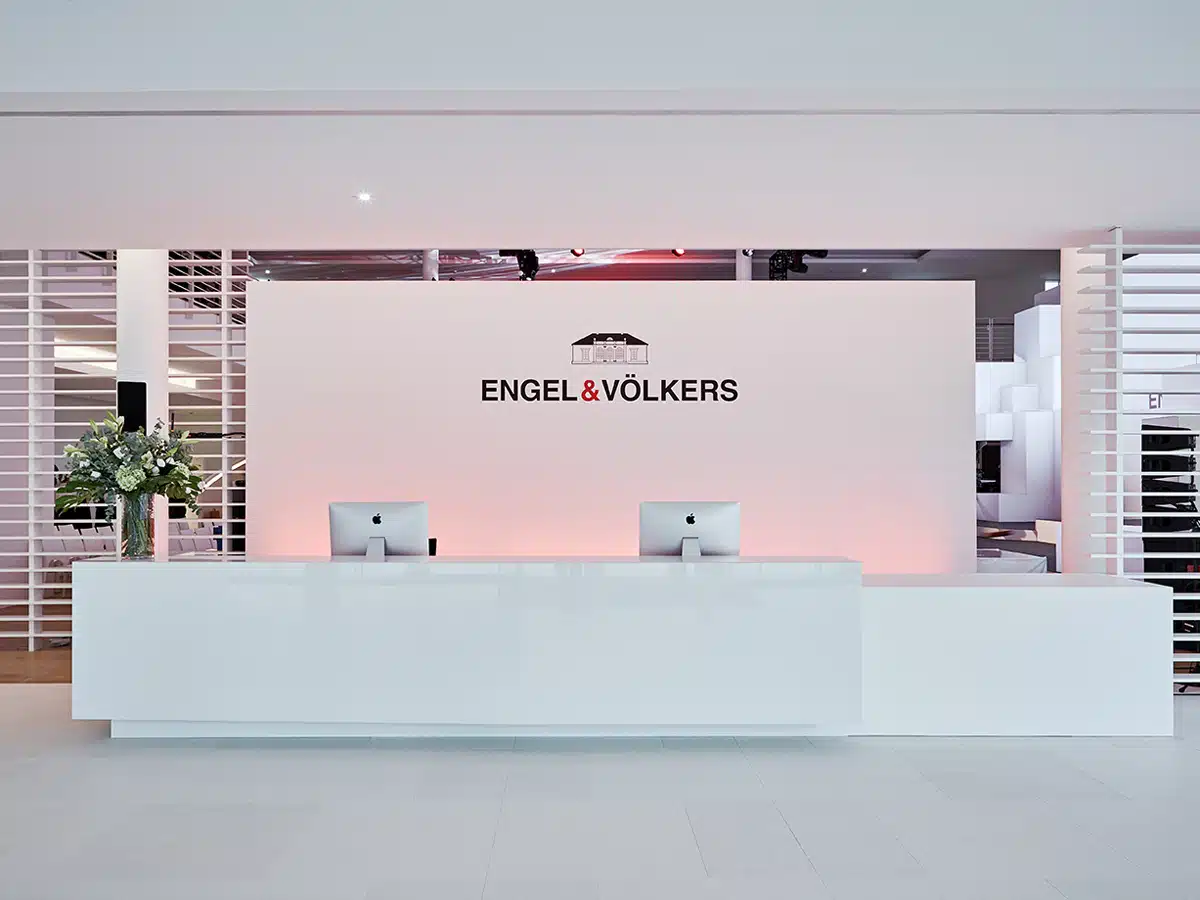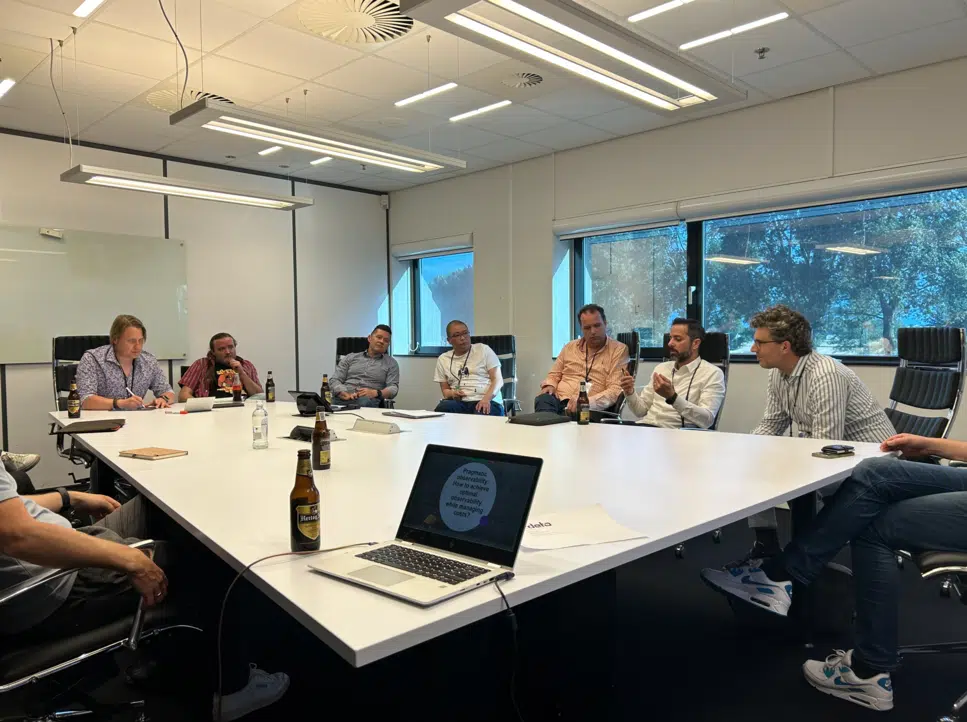In our most recent #TalentQA interview we spoke with Wietse Boersma, Business Developer and Recruiter at SpronQ.
Wietse spoke to us about the benefits and challenges of working in recruitment for a startup, and the importance of employee branding when it comes to sourcing and engaging technical talent. As well as offering his advice on how businesses can help their tech teams to thrive.
Third Republic (TR): Could you start off by telling us a bit about your career and how you got to where you are today as Business Developer & Recruiter at SpronQ?
Wietse Boersma (WB): In a nutshell, without going too far back, I started my career at a British recruitment consultancy firm called Computer Futures, which is part of the SThree holding group. I worked there for three years until I was a Senior Consultant. I was about to lead a team and go up the chain, but there was just too much business that wasn’t aligned with the way I see the world, and the way I want to approach recruitment. So I decided to leave to join SpronQ. I’ve always been pretty tech minded, so I wanted to join a tech company. I currently do contract recruitment but I’m starting a sister company; Ovinoco, through which I will do contract mediation as well.
TR: Could you describe some of the benefits and challenges of working in recruitment for a startup business?
WB: The biggest difference between working for a corporate and a small startup, is that we’re far more agile. We’re not restricted to any corporate processes. We’re very much able to have our people craft their own jobs. Which of course, helps in recruiting people, if you give them the freedom to design the job they want to have, and also give them a lot of responsibility and impact. So, I think the biggest difference is that we don’t have to stick to any processes or rules, which is a big advantage. But on the other hand, we still have a lot to prove. For example, if you’re talking about Apple or Microsoft, I don’t think it’s difficult to find people to work there. In that sense, it’s a lot more challenging, but we can also be super flexible in many ways.
TR: Given the current rise in remote working due to COVID-19, do you have any advice for businesses looking to hire and onboard new employees remotely?
WB: If you’re a business that’s looking to recruit software engineers or IT people, you’re in the perfect position at the moment. From a purely supply and demand perspective, I don’t think it’s actually going to be a challenge now to find appropriate people because there’s so many people, and so many freelancers are looking for permanent positions, because of the changing world that we’re in.
The supply is there, but if you’re talking about onboarding your people in this situation, what I’d do is just stay super short on the ball, as we say in the Netherlands. I make sure I listen to the candidates and ask them: what is the perfect way for you to be onboarded, what do you need to be supported? We’ve actually had someone join us during COVID-19, and I just asked them; in your head what is the ideal way for me to support you, in getting you up and running in the company? I try to reach out whenever I can to be super engaged with someone joining right now. Everyone interprets the onboarding process differently, someone might want to have lots of interaction, others might just want to do their own thing. My job, partially, is to facilitate them being happy joining the company, it’s not about me forcing any processes on them. I just ask them; what can I do to help?
TR: In your opinion, how important is employer branding when it comes to sourcing and engaging technical talent, specifically when it comes to hiring remotely?
WB: I think there’s a thin line between doing it the right way and the wrong way. I see a lot of company’s do their employer branding; vlogging about their new table tennis, or offering free lunch. But I really believe that it depends on what people are you trying to attract.
My experience is that if you are trying to attract the best in tech, or in engineering, it’s not going to help if you’re trying to be the cool company. Tech people are looking for technical challenge and impact, and something worthwhile they can build on. It may help in some scenarios, but I don’t think it would help with SpronQ, of course we want to be out there and be seen. But at the end of the day, it’s all going to be about that personal contact you have with the recruiter. I find it works best to connect with people one on one, and our story is strong enough that it doesn’t need any fancy employer branding campaign, if you will, to convince someone.
I think the importance could be overestimated, I feel you’re better off focusing on the story that your recruiters have in the one on one conversations. It really depends on who you’re trying to attract. If it’s people who are just out of school, for example, that may really work, but for SpronQ, we’re looking for people with different technical backgrounds, people who are really looking for the technical challenge.
TR: In your opinion, what are some of the best ways to maintain culture and agility in tech teams when operating remotely?
WB: It’s a bit of a cliché, but SpronQ, we’re a small company so we automatically do it, but really look out for each other, be active on Slack and things like that. Try to engage people that are maybe not as active on communication channels. I try to do a lot of phone calls, I have colleagues that make a lot of phone calls to other colleagues, so for SpronQ it works automatically, but I can imagine that there are companies where people might feel a little bit left behind. I think it’s really important for people like myself, like recruiters and anyone really, to consider how to proactively engage with colleagues. You’ve got to deal with the situation as it is at the moment, so we try to do virtual meetups and everything, calling each other and talking about things other than just work or technical stuff.
TR: In your experience of building tech teams, what would you say is key when it comes to businesses helping their tech teams to thrive?
WB: I think what happens a lot, and what’s always been a big problem in our field, is that there is a major discrepancy between the business and IT. What happens is that businesses usually make a lot of assumptions about what engineers want from a project. When you talk to a lot of engineers, you find that usually, for example, money is never going to be a decisive factor when choosing a new project or job.
There’s too many assumptions being made, which implies that we have to listen better to what engineers want. It’s so important to really take the time to get to know them, be there for them outside of commercial opportunities. This is also one of the reasons I started my sister company; Ovinoco, to approach things more from a community standpoint. To build a community of engineers and give them a place where they can voice frustrations, talk to each other, and also for me to have the opportunity to hear about what they actually want, what they like in a project and what they don’t like in a project.
To summarise that; really listen to engineers, which doesn’t happen enough, and don’t make assumptions. Too often software engineers are treated like a resource or a commodity. Software engineering is pretty intensive work, and it’s really draining, so I think it’s really important to listen to these people to understand what you can do to make it better, and so that everyone can be on the same page.
What I’m doing now is I involve SpronQ engineers in the hiring and team engagement process. I involve the engineers and have them talk to the engineers I want to engage. We have Slack channels, virtual meetups and that’s all being organised by the team, not just by me. A lot of the time things are happening from the commercial recruitment standpoint, when like I’ve said, there’s not a bigger discrepancy than between business and the software engineers, so I try to involve as many of the engineers as I can.
TR: How do you think the current pandemic will affect the future of tech teams, if at all?
WB: Too many people say remote working will replace onsite working, I totally disagree with that. I do think that companies will be more lenient towards remote working, but I also feel that we’re finding out that onsite working has so many advantages. Yahoo, a couple of years ago reversed remote working because it was detrimental to their team cohesion and performance. Which is something I really agree with. I think there should be a healthy mix between both. But I do think that onsite working is not going away, even in tech, because it’s easier to communicate with your colleagues.
Additionally, I think the benchmark is being reset with hourly rates and the way we qualify candidates. I think the bar is becoming higher, purely because there’s so much supply now and so little demand. Which is not necessarily a bad thing, I think we’re going to be more critical towards the candidates that we interview. Maybe before companies were too quick to hire, I think now we’ve realised that we should thoroughly qualify.
TR: Have you noticed a skills gap in tech talent? If so, how do you think businesses can work towards closing this gap?
WB: Namely by involving engineers in the entire process, not just when there’s interviews. I think you should be critical from the get go, for me, if people for example, refuse to do a coding challenge, that’s a red flag. In order to really maximise and spot talent, involving engineers is key. Making the hiring process a technical element, not just HR or commercial. As a recruiter, all I really need to do is safeguard the sales part of the process; checking commitment, urgency, closing the candidates, but you need technical skills to check technical skills. When companies want to really find that talent then you have to involve actual engineers.
TR: Finally, do you think that recruitment agencies can provide value in these competitive, fast-moving markets?
WB: Yes, but again I feel that recruitment consultants need to realise their place. In that we are not technically sound, of course we should try to understand what they do from a superficial level but involve engineers in general. I think that recruitment consultants can definitely provide value in the sales process, added value, because that’s when you are really maximising time to hire. I think we really have to constitute a paradigm shift more towards facilitating and involving actual software engineers.
If you’d like to take part in our #TalentQA series or you’re looking to source technical talent, get in touch with our specialist teams today!




